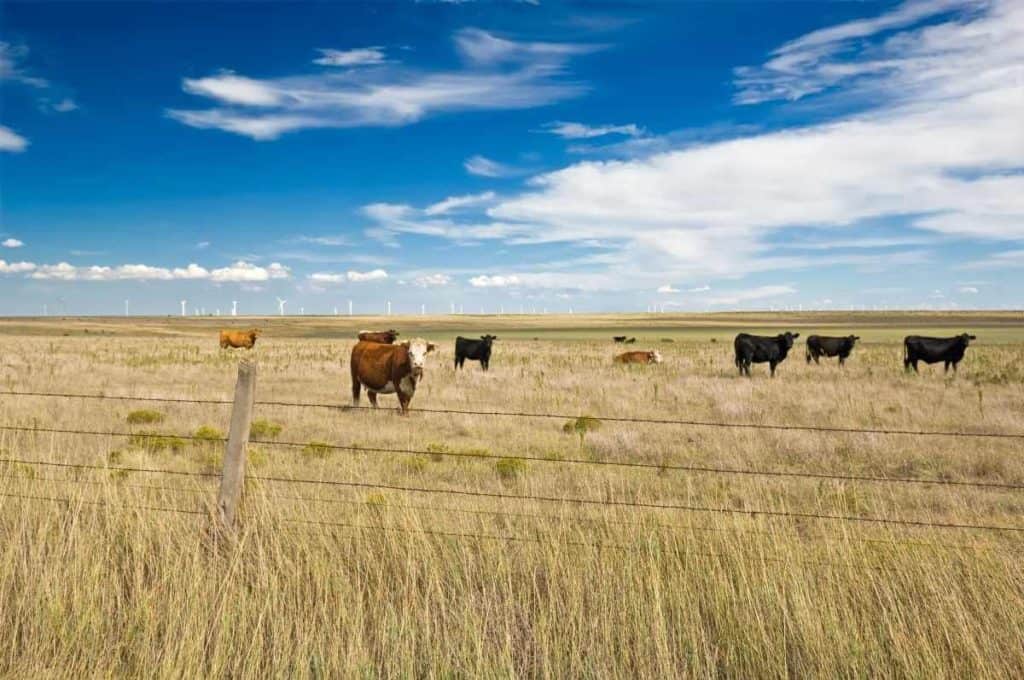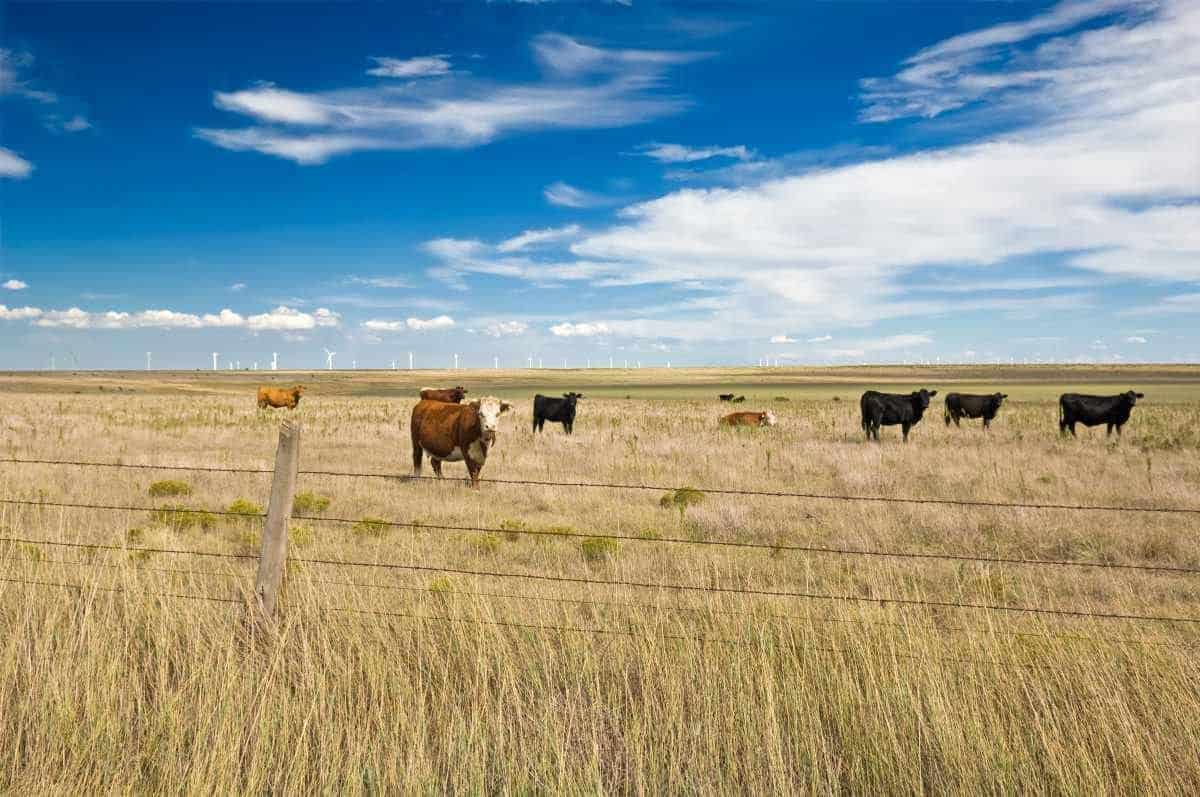Episode 29 | December 27, 2018
The Honorable Drew Springer, Texas House of Representatives, joins us from Muenster in far North Texas to talk about the impact of alternative energy on the communities he represents in Texas House District 68. He discusses macro issues like agricultural economics and job creation as well as personal insights such as the view from the top of a wind turbine nacelle and the light pollution from wind farms. Hosts McKay Proctor and Alex Van der Colff also learn more about tax considerations for renewable energy companies through Mr. Springer’s work at Ryan LLC.
North Texan Roots
Drew Springer has spent most of his life in North Texas. He grew up in Weatherford, where his father and grandfather served on the City Council. After graduating from from the University of North Texas (UNT) in Denton, he spent more than a decade working in Dallas. Today he and his family live in Muenster, near Gainesville. Mr. Springer’s deep roots in the area and a sense of civic responsibility inherited from his forebears led him to the Texas House of Representatives in 2012. He represents District 28, made up of 22 mostly rural counties covering 25,000 square miles. That makes it the second largest district in the state by land area, although the cows outnumber his constituents.
Between criss-crossing his expansive district and driving to legislative sessions in Austin, Mr. Springer spends a lot of time on the road. He adds 60,000 miles each year to his car’s odometer, which means he’s a self-taught expert on what to listen to during long drives. His road-warrior recommendations include Nudge: Improving Decisions about Health, Wealth, and Happiness by Cass Sunstein and Richard Thaler, and the Freakonomics podcast, but his real pro tip is to listen to everything at 1.5x speed.
The Growth of Alternative Energy in District 68
“I’ve got a really interesting district,” says Mr. Springer, “one that sees a lot of alternative energy.” His district may have more wind energy than anywhere else in Texas, and increasingly more solar power.
The Competitive Renewable Energy Zones (CREZ) transmission lines running through Mr. Springer’s district form a pipeline for all of that renewable energy from the parts of the state that can generate it most efficiently to the population centers further east and south.
The CREZ lines go all the way back to a law passed by the Texas legislature in 2005 to double the state’s renewable energy capacity. Over 3,000 miles of transmission lines have been energized since 2014 with a capacity of 18.5 gigawatts (GW) of power. Since then, wind power generation has grown by almost 20% each year in Texas.
Even the efforts of his alma mater UNT, which has been purchasing 100 percent renewable energy since 2017, and the City of Denton’s commitment to purchase 100 percent renewable energy by 2020, may trace back to the CREZ lines by making it more affordable to choose renewable energy.
The Local Impacts of Renewable Energy in Rural Texas
When evaluating how alternative energy sources affect Texans, Mr. Springer points out both the consumer and landowner perspectives. Consumers are interested in a diversifying mix of energy sources, whether their motive is to go green or simply to save money. For property owners such as farmers, wind and solar power offer a unique opportunity to generate an alternative income stream.
According to Mr. Springer, landowners are already accustomed to the idea of using their land for multiple purposes, perhaps with cows on the surface of the land and oil wells drilling underneath. Having wind towers and even solar farms enable fuller utilization of the land in new ways. He says that renewable energy “allows those cotton farmers to be able to keep that land, supplement their income and get them through some tough times.”
The growth of renewable energy does have trade-offs. For example, a coal burning power plant in district 68 is scheduled to shut down in 2020, taking with it 80 good-paying jobs that are hard to lose. “There’s no guarantee that everything’s going to stay exactly the same forever, and that’s a tough one to tell folks sometimes,” says Mr. Springer. However, renewable energy brings economic benefits especially in small towns. He provides an example, citing not only the local residents who are hired to build roads and construct wind towers, but also the ancillary impacts: “A restaurant that may be just right on the edge of surviving may all of a sudden have 50 construction workers for 6 months. Now they can afford to upgrade the fryers or the cooktop because of the influx of business.”
In summary, Mr. Springer says, “It’s good for the economy. It’s good for the environment. It’s good for our local area. Probably 10 of my counties have about 1500 people total in 1,000 square miles. It’s an interesting place out there. A lot of agriculture, and this helps give a mix a balance into their economies.”
Not to mention that wind turbines can be quite a rush to experience up close. Mr. Springer is also a volunteer firefighter in Muenster. He has run drills on saving workers from the nacelle of a wind turbine in case of fire using a special device with a harness, hook, 350 feet of rope, and gears that lower the person at the proper speed. He says, “I’ve actually been to the top of a nacelle in Muenster – you can see all the way into Oklahoma.”
What the Future May Hold in the Texas Legislature
Mr. Springer suggested that alternative energy legislation in 2019 could potentially include:
- Renewal of the 312 and 313 property tax abatements, which can play a role in making renewable energy projects financially viable
- Requiring companies who have reserved a portion of the CREZ line capacity for future projects to demonstrate project development progress or place a deposit to hold their spot in line
- Adjusting the lighting on wind turbines to turn on only when aircraft are within range
In other trends related to renewable energy, we are likely to see:
- Additional CREZ lines at some point in the future
- More solar capacity closer to the source of demand
- Phaseout of some of the coal facilities
How to Learn More and Stay Connected
Mr. Springer says that Texas legislators are always happy to hear from constituents on the issues that are important to them. “We’re easy to find – just Google ‘Texas house’ and you’ll find all 150 members. I would highly recommend everybody reach out and get to know your representative. It is surprising sometimes how few people actually do reach out to us. “
In addition to serving in the legislature, Mr. Springer also has a connection to renewable energy through his job at Ryan, one of the largest consulting firms in the world. His firm is increasingly involved with alternative energy companies as they consult on property taxes, sales & use tax, and business credits and incentives. He says, “We’re trying to help businesses grow and trying to make more jobs in Texas.” To learn more about their services or to get assistance with tax issues, visit Ryan.com.

LINKS AND RESOURCES
- Drew Springer, Texas House of Representatives District 68
- Ryan LLC
- Nudge: Improving Decisions about Health, Wealth, and Happiness(audiobook available)
- Freakonomics podcast archives
- University of North Texas We Mean Green Fund
- ERCOT Competitive Renewable Energy Zones (CREZ) Process Overview
- $7 Billion Wind Power Project Nears Finish (Texas Tribune, October 2013)
- Wind power generation growth in Texas since 2014 (Wikipedia)
- Texas Tax Code Chapter 312 Frequently Asked Questions (Comptroller of Texas)
- Chapter 313 in Texas puts energy fight in the school yard (Daily Energy Insider, April 2017)
Tun in for our next episode with co-owner of Thundercloud Subs Mike Haggerty, an iconic local business known for its “fresh, fast and healthy” food.
